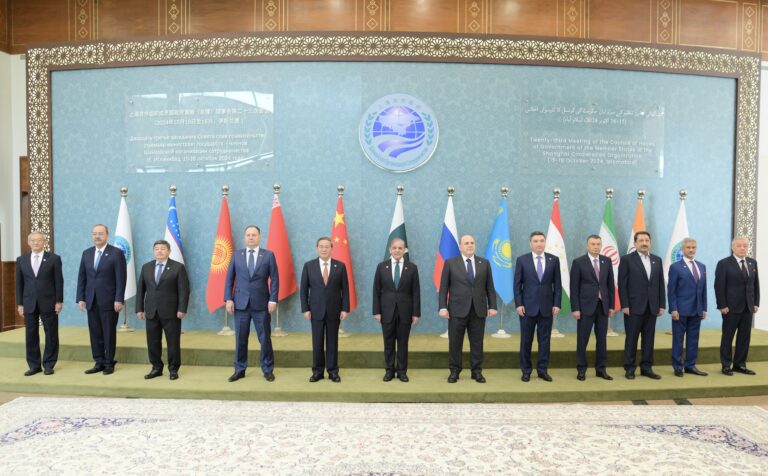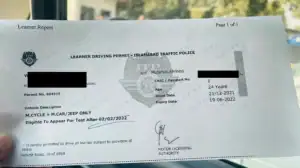Islamabad, Oct 16: SCO Delegation Leaders Reaffirm Commitment to Peaceful Cooperation and Drive for Economic Growth. In addition to stressing the significance of enhancing cooperation across a range of sectors, including politics, security, trade, finance, and cultural ties, the heads of delegation from Shanghai Cooperation Organization (SCO) member states on Wednesday reaffirmed their commitment to peacefully resolving disputes through dialogue and consultations.
This is necessary in order to create a prosperous, peaceful, safe, and ecologically sustainable planet.The heads of delegations called for sustainable and inclusive economic growth of member states by maximizing the region’s potential in areas like green development, digital economy, trade, e-commerce, finance and banking, investment, high technology, start-ups and innovation, poverty alleviation.
Health care, including traditional and folk medicine, agriculture, industry, transportation, logistics connectivity, energy, including renewable energy, communications, science and technology, environment, and climate change in a joint declaration released at the end of the two-day SCO Council of Heads of Government (CHG) meeting held here.
The SCO Economic Development Strategy for the years up to 2030 and the Program of Multilateral Trade and Economic Cooperation of the SCO Delegation member states must be implemented, the heads of delegations stated, reaffirming their commitment to stable economic and social development in the SCO region.
They emphasized that in order to carry out the corresponding action plans, coordinated efforts must be made via the appropriate collaboration structures.The leaders of the SCO member states, including China’s Premier of the State Council Li Qiang, Belarusian Prime Minister Roman Golovchenko, Kazakh Prime Minister Olzhas Bektenov.
Russian Prime Minister Mikhail Mishustin, Tajik Prime Minister Kohir Rasulzoda, Uzbek Prime Minister Abdulla Aripov, Kyrgyzstan’s Chairman of Ministers’ Cabinet Zhaparov Akylbek, Iranian Trade Minister Seyyed Mohammad Atabek, and Indian External Affairs Minister Subrahmanyam Jaishankar were among those present. Prime Minister Muhammad Shehbaz Sharif presided the event.
Additionally, Turkmenistan is attending the summit as a Special Guest, represented by Deputy Chairman of the Cabinet of Ministers Rashid Meredov, and Mongolia is attending as an Observer State, represented by Prime Minister Oyun-Erdene Luvsannamsrai.
SCO Secretary-General Zhang Ming, Director of the Executive Committee of the SCO Regional Anti-Terrorist Structure (RATS), Ruslan Mirzayev, Chairman of the Board of the SCO Delegation Business Council Atif Ikram Shaikh, and Chairman of the Council of the SCO Delegation Interbank Union Marat Yelibayev are among the other dignitaries who attended the moot.
The delegation leaders expressed worry about decreased investment and supply chain disruptions brought on by protectionist policies and trade restrictions, while also pointing out that the global economy has undergone major changes as a result of technological and e-commerce breakthroughs.
The delegations stressed the necessity of a multilateral trading system to promote global sustainable development while opposing unilateral sanctions and trade restrictions.Reiterating their support for China’s One Belt, One Road initiative, Belarus, Iran, Kazakhstan, Kyrgyzstan, Pakistan, Russia, Tajikistan, and Uzbekistan also highlighted their continued cooperation in integrating this project with the Eurasian Economic Union.
The delegation leaders emphasized how crucial it is to use international collaboration and regional potential to promote fair interactions within the SCO. They promoted optimization in green development, the digital economy, health care, agriculture, energy, and environmental projects, and they demanded sustainable and equitable economic growth.
While endorsing China’s 2024–2025 SCO chairmanship, delegation heads also commended Kazakhstan’s 2023–2024 SCO chairmanship and underlined the significance of carrying out decisions from the July 4, 2024, CHS summit.
They emphasized that the principles of equality, mutual respect for the sovereignty, independence, and territorial integrity of states, non-interference in domestic affairs, non-use of force or threat of use of force, and mutual respect for the right of peoples to independently and democratically choose their own political, social, and economic development are the cornerstones of the sustainable development of international relations.
They restate the dedication to using discussion and consultation to resolve disagreements and conflicts amicably between nations.In order to promote wide-ranging, fair contacts in the SCO Delegation region founded on respect for one another and international law, they underlined the significance of utilizing regional potential and international cooperation.
They emphasized the necessity of strengthening economic and commercial relations among SCO member nations by implementing the “New Economic Dialogue” idea. Additionally, they emphasized how crucial it is to use technical advancements and the digital economy to increase regional competitiveness and guarantee that everyone benefits from technology.
Delegation heads emphasized the significance of strengthening collaboration in the area of information security, the pertinence of the “digital divide” problem, and the need to investigate the development of a system for international data sharing.
In addition to praising the role that standardization instruments play in facilitating trade, they urged the SCO Delegation member states to foster equitable and mutually beneficial interactions and to share their experiences in these fields.
They underlined that support for creative industries will boost competitiveness, lower unemployment, and promote sustainable growth in the region, recognizing the importance of the SCO Industry Ministers’ Meeting and suggesting its next session in 2025.
They backed the creation of a knowledge-sharing forum on IT standardization and national industrial strategies. They promoted ongoing collaboration under the 2018 Memorandum of Understanding and underlined the significance of growing micro, small, and medium-sized businesses to propel economic growth and job creation.
Delegation leaders underlined the need of a single energy vision and urged further collaboration in the areas of energy infrastructure, security, and renewable energy investment. They backed plans for an independent settlement mechanism and convergent payment systems and reiterated the need of putting the roadmap for expanding the use of national currencies in mutual settlements into action.
Along with Iran’s plan to join the IBA, they also acknowledged the Interbank Association’s work in financial innovations and ESG finance, as well as the SCO economic Council’s role in promoting economic relations.
Delegation leaders welcomed the forthcoming Conference of Railway Administrations in Moscow and stressed the importance of strengthening cooperation in railway transit. In line with the SCO’s Concept of Cooperation on Ports and Logistics Centers, they promoted cutting-edge technology in multi-model transportation and demanded the development of infrastructure, logistics, and safety measures.
Additionally, they promoted increased collaboration in waste management, biodiversity preservation, and environmental protection. They created a Special Working Group to expedite related projects and reiterated their commitment to tackling climate change through experience sharing.
In order to track the dangers of natural disasters and enhance response tactics, they backed emergency agencies’ increased cooperation. Delegation leaders backed further collaboration in the SCO region to improve healthcare digitization, prevent and treat illnesses, and grow medical tourism.
Within the framework of the operations of the Special Working Group (SWG) of the SCO Member States on poverty reduction concerns, the heads of delegations emphasized the significance of fostering more collaboration in order to combat poverty and improve the population’s well-being.
On the basis of previously accepted papers and solutions in the fields of agriculture and food security, they urged for further increasing collaboration to extend the areas of interaction between the Member States and promote mutual trade in agricultural products.
In addition to encouraging efforts to foster collaboration in research on climate-resilient and nutrient-dense cereal crops, such as millet, rice, wheat, maize, and other traditional crops, the delegation chiefs reiterated the necessity of taking action to promote nutrition and global food security.
They stated that they placed a high value on hosting sporting events and contests in which SCO Member States, SCO Observer States, and SCO Dialogue Partners participated in order to improve bilateral sports relations and the growth of Olympic, non-Olympic,
They praised the passage of a plan for carrying out the SCO Member States’ Cooperation Program for the Development of Artificial Intelligence. SCO cultural and humanitarian ties and mutual understanding are strengthened through people-to-people diplomacy, the delegation heads stressed.
The SCO CHG also approved the SCO budget for 2025 and the SCO Secretariat’s Report on the Events and Meetings Involved in the Implementation of the SCO Member States’ Program of Multilateral Trade and Economic Cooperation.
In light of the Republic of Belarus’s admission to the Shanghai Cooperation Organization, decisions were reached during the conference on a variety of matters pertaining to the organizational and financial operations of the SCO permanent bodies.
The heads of the delegation conveyed their appreciation to Pakistan for organizing the 23rd meeting of the SCO CHG in a cordial and productive manner. In 2025, the Russian Federation will host the next gathering of the Council of Heads of Government (Prime Ministers) of the SCO Member States.









